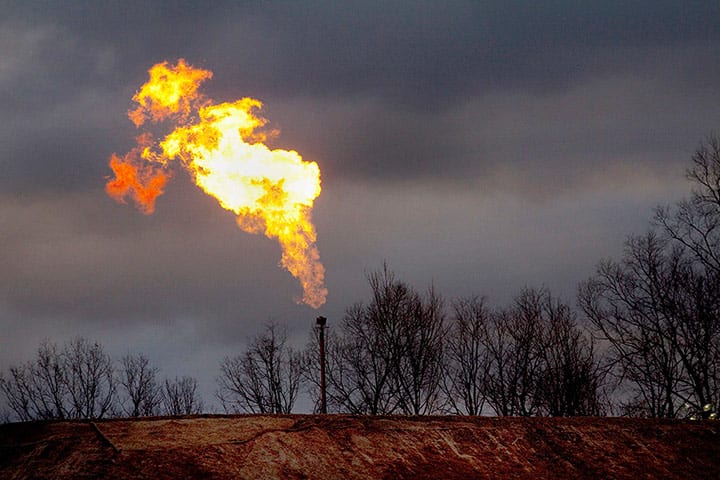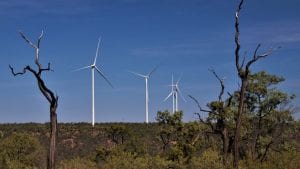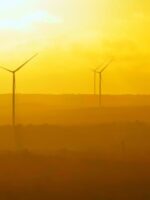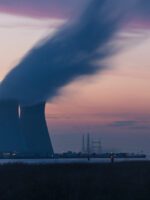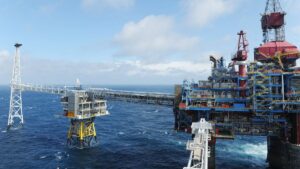 In a state with a history of enlightened decisions, The Final report of the South Australian Parliamentary Inquiry into unconventional gas (fracking) in the South East of South Australia the Committee has produced another one.
In a state with a history of enlightened decisions, The Final report of the South Australian Parliamentary Inquiry into unconventional gas (fracking) in the South East of South Australia the Committee has produced another one.
The Chair of the Committee stated “….the Committee has reached the position that social licence does not yet exist for the development of an unconventional gas (UGas) industry in the South East (of South Australia)”
“This is not to say unconventional gas exploration and development should never occur in the region, but that in the Committee’s view obtaining social licence is a necessary precondition in such development occurring.”
The key question of ‘why is there no social licence?’ emerges from health concerns, amongst others.
Water security concerns
It is a region of complex aquifers and ground water recourses. These areas are most at risk of water complications – be it through spills, failures in well integrity, excessive water use or inappropriate handling, processing and disposal of vast quantities of waste water. Such consequences would be major for farmers who have relied on these water systems for generations – and succeeded in delivering high quality food and wine.
The Committee felt that fracking in deep shale if properly managed and regulated was unlikely to impose significant risk on groundwater, but that long term well integrity, surface spills and waste and chemical transport “need to be properly considered”.
This was wise in view of the recently released Compendium by the Physicians for Social Responsibility and Concerned Residents of New York on water contamination which argued strongly on evidence of contamination that regulation and management regimes have not fully protected important water supplies.
Climate concerns and food security
The Committee appeared to recognise the incompatibility of a shale gas industry with efforts to address the increasing impacts of climate change.
Whether this was in recognition of the responsibility of all governments to do their part to mitigate the worst of climate change consequences, or simply a business risk as demand for gas drops, is unclear.
The protection of the state’s most productive prime agricultural lands is already very important today – but may be absolutely essential in future years as this area may retain enough rainfall to remain productive with progressive climate change.
Physical and mental health concerns
The Committee did not appear to recognise one major reason for the rejection of a social licence by so many South Australians who value the health and wellbeing of their families and communities as a highest priority. The public is aware of the relevance to rural Australia of the growing peer reviewed research in the United States that has found potential links between closeness of residents and densities of unconventional gas operations and asthma exacerbations, negative birth outcomes, cardiovascular and neurological conditions and acute symptoms, such as migraine and upper respiratory symptoms.
The community is also aware of the disparity between those who benefit and those bearing the risks. Boom and bust social and economic stresses resulting from community division, insecure and lower than expected job numbers, impacts on housing and property values and local farms and businesses compete with economic benefits for populations in affected areas.
Conditions for a real Social license
The report extensively considers what is meant by social licence, essentially a meaningful dialogue between industry and community involving information exchange and engagement with issues important to both. If issues remain unresolved – mining doesn’t proceed.
Gaining a social license is not just about ‘being nice’. And it is also not about ‘instantly informing the community to separate ‘fact’ from ‘fiction’ or ‘convincing the public that, despite the undoubted potential benefits, the impacts and risks … are acceptably small’ (quote on page 13, from the International Energy Agency publication Golden Rules for a Golden Age of Gas, 2012).
Communities around Australia subject to the potential hazards and disruptions of unconventional gas development, those in the Tara gas fields or the northern regions of NSW, will now ask ‘When was our opportunity to negotiate a social licence?”.
Regulation
The Committee notes “There is a perception in the community of a potential conflict of interest regarding the dual roles of the Department of State Development (DSD) as both promoter and also regulator…”. Indeed, in our submission to the SA government, Doctors for the Environment Australia we draw attention to the misleading information actually provided by DSD.
The role of government should be as a mediator between the interests of local community and industry but this role is disturbed by economic needs of government. Health risks should not be traded away. In SA, the process of assessment was “Through our administrative arrangements with the EPA, with DEWNR (Department of Environment, Water and Natural Resources), with the Department of Health we consult in reaching an understanding of what the level of the impact of that particular activity would be, whether it is low, medium or high” This describes a closed system: it does not allow for external input, or analysis of decisions and it is an unacceptable way of dealing with health hazards.
The Australia community is increasingly bewildered about the diversity of decisions on UGas development in different states, ranging from unbridled development to moratorium and ban, each decision based, essentially, on review of the same scientific and social evidence.
Each successive report from states on UGas emphasises the dire need for an independent national EPA to bring some sense and balance into a complex scientific and social issue and above all to protect the public health and the productive environment. It is time for reform.
Dr David Shearman AM is Hon Secretary Doctors for the Environment Australia
Dr Melissa Haswell is Professor of Health, Safety and Environment, School of Public Health and Social Work, Queensland University of Technology, Kelvin Grove, Queensland, member Doctors for the Environment Australia

